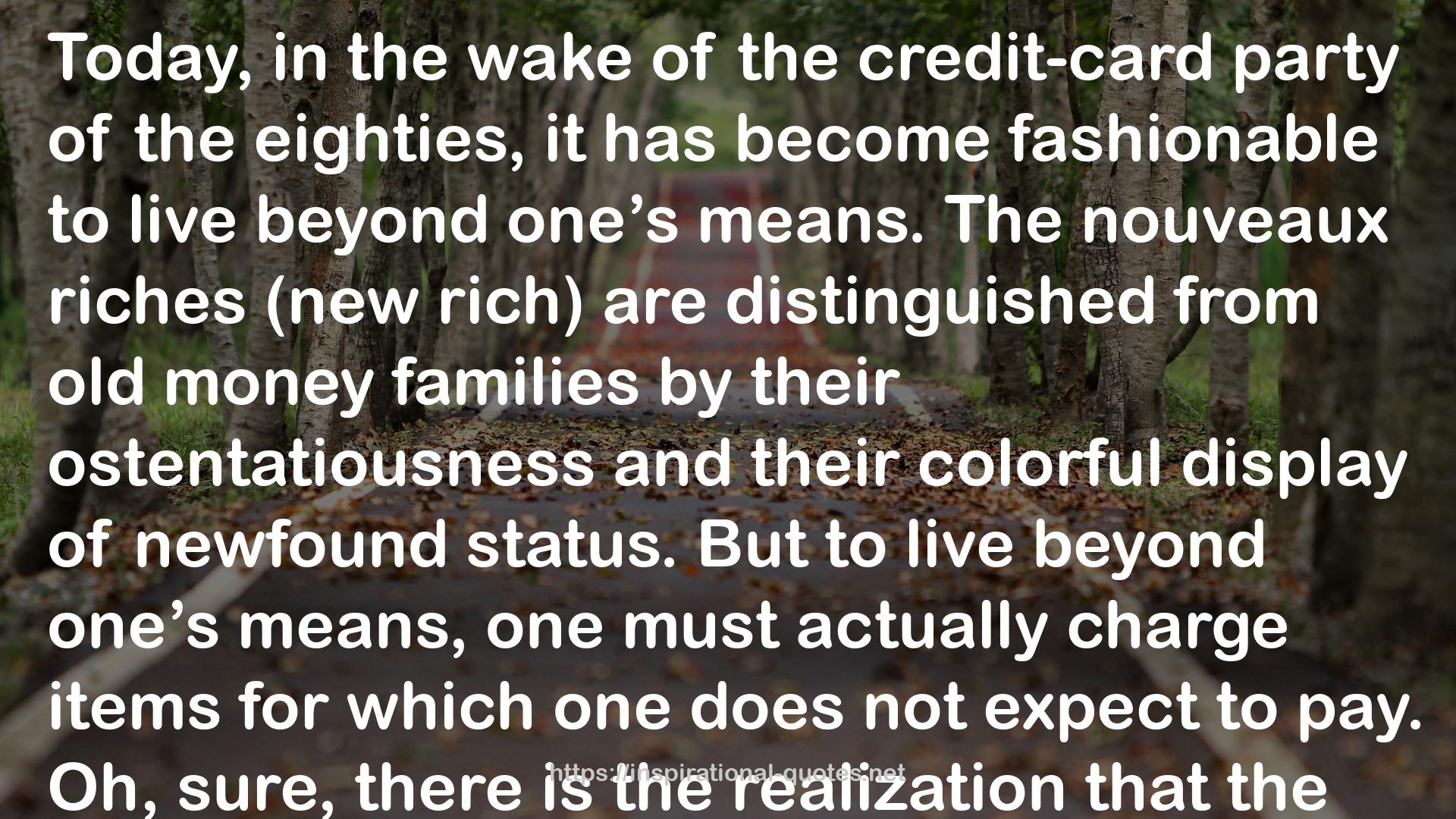" Today, in the wake of the credit-card party of the eighties, it has become fashionable to live beyond one’s means. The nouveaux riches (new rich) are distinguished from old money families by their ostentatiousness and their colorful display of newfound status. But to live beyond one’s means, one must actually charge items for which one does not expect to pay. Oh, sure, there is the realization that the company will not let the bill go forever, but we will enjoy it now and worry later. This, too, is a form of theft. The creditor assumes that when we charge something, we intend to pay off the debt; but if that responsibility is not assumed by the debtor, there is a breech of contract—fraud, or, if you will, theft. It is not really our hard-earned cash that paid for the item, but the money loaned to us by the creditor. To default on our loans, of course, does not mean merely that we fail to pay for the item, but that we are requiring someone else to pay for it. "
― Michael S. Horton , The Law of Perfect Freedom: Relating to God and Others through the Ten Commandments
